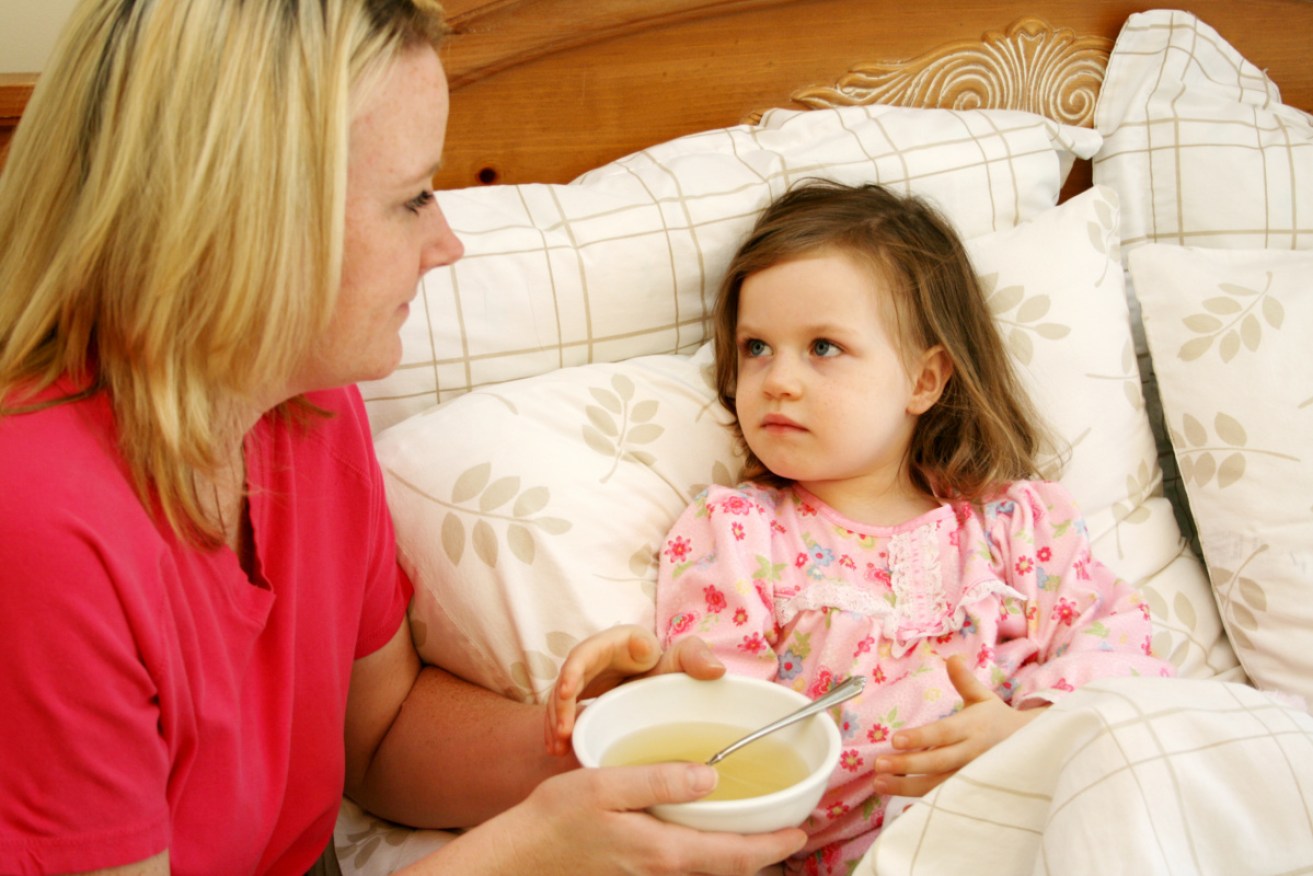Food for immunity: Why you should ignore the old adage ‘feed a cold, starve a fever’


Opt for chicken soup when your kids are sick. Burgers and fries put an already burdened immune system under stress. Photo: Getty
For at least 450 years, people have been advised, when dealing with a sick person at dinner time, to “feed a cold, starve a fever”.
Children had heard this said as if it was a magic spell.
The thinking was, suffering a ‘cold’ meant you needed warming up (with food), while a fever could be cooled by fasting.
Which is nuts.
The reality is, unless the patient is throwing up everything on offer (call the doctor if the puking persists), sick people need feeding in order to support the immune system.
It makes sense
The immune system expends energy when fighting a virus or an infection – and a fever is part of that fight.
Restricting food seriously compromises the body’s ability to maintain this fight.
Research from 1996 found that infections are “more frequent and tend to be chronic in malnourished children”.
A 2008 animal study found that reducing a regular diet by 30 per cent significantly decreased the amount of available B cells (a type of white blood cell), which produce antibodies and maintain immune memory.
Without these cells, “the immune system must relearn how to fight a threat if it reappears”.
This has implications for people getting a COVID-19 jab: Vaccines, in order to work effectively, “must provoke B cells to produce sufficient antibodies for immune memory”.
A 2003 study in famine-affected Ethiopia found that measles vaccines have a “significantly lower rate of efficacy among the malnourished”.
Food for immunity
Sick people need good, nutritious food, such as grandma’s old stand-by chicken soup or, if a vegetarian, a broth made from shiitake mushrooms. Both have been found to support the immune system.
A number of studies found that chicken soup, with lots of strained vegetables, is particularly good for upper-respiratory infections, has anti-inflammatory properties, and appears to benefit people with high blood pressure.
The liquid in soups help counter dehydration from fever, and stops mucus from drying up and clogging your nose, throat and lungs.
Runny mucus might be gross, but it’s your body working to expel infection.
Fast food is to be avoided.
Burgers and fries and sugary drinks will put an already burdened immune system under further stress.
A 2008 study found that the “immune system reacts similarly to a high fat and high calorie diet as to a bacterial infection”.
Unhealthy food seems to “make the body’s defences more aggressive in the long term”.
Even after switching to a healthy diet, “inflammation towards innate immune stimulation is more pronounced”.
These changes “may be involved in the development of arteriosclerosis and diabetes”.








